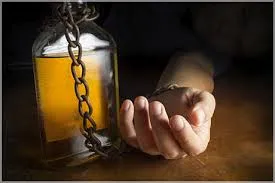
DON’T ASK AN ALCOHOLIC TO CHOOSE BETWEEN YOU AND THE BOTTLE.
Todays counselling session was with a lovely lady whose husband is an alcoholic. He’s been abusing alcohol for many years but over the last twelve months, he has got a lot worse.
She told me that he is now drinking in the morning before he goes to work. He then drinks at lunch time and when he gets home he begins drinking again before he finally falls into bed and passes out.
She told me that she had tried everything to stop him from drinking. She’d involved the GP, his psychiatrist, a social worker and a counsellor. She had hidden his drink, thrown it down the sink, begged and pleaded and nothing worked.
The final straw has now come for their marriage and she has told him that either he gives up drinking or she leaves. His reply to this was “Well Piss Off then!”
She asked me what she should do.
My reply was simple and shocking. I told her to stop trying to help him because she couldn’t do anything that would stop him from drinking. No-one can prevent another person from drinking if they want to and certainly not if they are addicted to it.
“But..but…I love him.” She said.
“Oh, it’s fine to love him and care for him.” I replied “Just so long as you accept that you can’t change him. Only he can do that.”
There was silence for a moment whilst she digested this piece of information. “So, I have to live with this? Is that what you’re telling me? She asked.
“No, you don’t have to live with it if you don’t want to. You have choices as well. You can walk out the door whenever you want to… or ask him to leave.” I was quite matter of fact as I said it because I wanted my client to see that no-one was being forced to do anything. He couldn’t be forced to stop drinking and she wasn’t being forced to live with it.

THE REALITY
An alcoholic is an addict. They don’t choose to be an alcoholic. No-one goes to their careers advisor at school and says “Hey! I want to be an alcoholic when I grow up.”
Alcoholism is as much of an illness as any other disease that we encounter in our lives. It isn’t even about lifestyle choices by the time they get to the addiction stage. Yes, it is poor lifestyle choices that has caused it but we need to look at the reasons they started drinking in the first place.
The most common reason for alcohol abuse is misery. They drink to alleviate their misery, their anxieties, their guilt, their unpleasant memories, their sleepless night… In the long run, the alcohol actually makes these symptoms worse but by that time, they are addicted and not well enough to be able to stop.
The unfortunate thing is that drying out and stopping drinking takes a huge amount of courage on the part of the alcoholic. The withdrawal symptoms are dreadful. Unfortunately, that person doesn’t have that level of courage because their self esteem is already on the floor. Not to mention the fact that they are frightened that if they stop drinking all those nasty anxieties, worries, guilt, memories etc will come flooding back to bite them.
All alcoholics know that they are alcoholics, and this leaves them feeling inadequate, guilty and angry with themselves. Any counsellor will tell you that these innate feelings work against any therapy session. No matter how much positivity a counsellor throws at them, they can bat it right back at you with a double negative!
An alcoholic cannot make sensible decisions because the alcohol is keeping them sane (for the time being). So, if you say to an alcoholic, “Do you choose me or the alcohol.” You are, in fact, asking them, “Do you choose me or your sanity?”
I have a personal experience of an alcoholic that has hit rock bottom. When I say rock bottom, I mean lying on the floor passed out in their own vomit, urine and faeces with the empty bottles littering the floor around them. As the alcoholic comes around they begin to beg (yes beg) for just one more drink to enable them to get back on their feet. The person that I refer to was not a client… it was my mother.
BACK TO THE CLIENT
I asked the client how much she loved her husband and she told me that he was the only man she had ever loved, and she couldn’t bear to leave him.
I reiterated to her again that she couldn’t and shouldn’t help him to give up drinking UNLESS he requested that help.
Not all alcoholics hit the ‘rock bottom’. The ones that do are far more likely to seek help. Once they can see themselves having a future without alcohol, the battle has begun. It is at that point that my client will be able to spring into action and support him on his journey to recovery.
Remember, an alcoholic isn’t choosing alcohol. They are choosing to be free of their inner demons, if only for a while.

